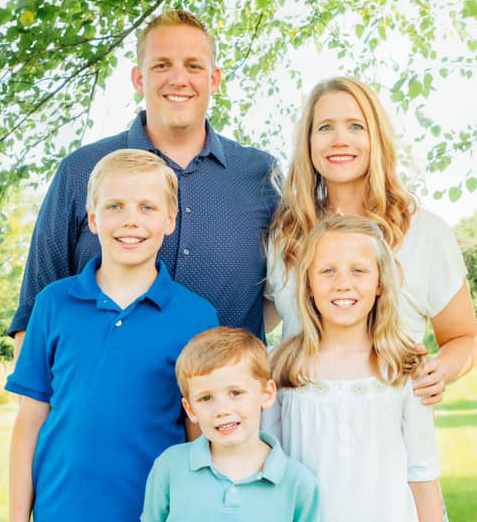19 Mar COVID-19 in the UB World
We have United Brethren churches in 18 countries–ten national conferences, and eight mission districts. In addition, UB Global missionaries with other organizations serve in ten countries where we don’t have UB churches. That gives us a presence in 28 countries. A few of those countries have not yet reported a case of the coronavirus…but are making preparations for its arrival.
Here is a look at the United Brethren world. As you’ll see, the United States isn’t the only country taking drastic measures to combat the virus. Numerous other countries throughout the world, including some with only a few or no cases, are also imposing strong restrictions of various kinds.
Beside each country heading is a number in parenthesis. That is the number of cases as of March 19, according to the World Health Organization (WHO). Those numbers change by the hour, but will give you an idea of the current severity in each country where we have a presence.
Africa
All things considered, Africa has not been hit very hard by the virus…yet. Egypt leads the way with 196 cases, and Algeria (72), Morocco (49), and Tunisia (29) are also in double digits. Those countries are all in North Africa. For most of sub-Sahara Africa, cases are just now popping up. The exception would be South Africa, which has 85 cases.
Sierra Leone (No cases)
We have a large presence in Sierra Leone, where UBs have served since 1855: 62 churches, dozens of primary schools, five high schools, and a major hospital.
Sierra Leone was perhaps hit harder by Ebola than any other country. But thus far, they have no cases of COVID-19–which may reflect a lack of testing. Both of the neighboring countries, Guinea and Liberia, have now reported cases. Earlier this week, Sierra Leone took some strong preventive measures.
1. People entering the country by any means will be isolated if they show any of these symptoms: fever above 99.5 degrees, persistent cough, or difficulty breathing.
2. Anyone coming from a country with 50+ confirmed cases will be automatically quarantined. Anyone coming from a country with less than 50 cases will not be quarantined, but will be contacted and checked throughout the next 14 days.
3. Four hospitals have been designated as quarantine facilities.
4. Citizens are encouraged not to travel internationally.
Liberia (2)
We have 9 churches in Liberia. The first case was reported Monday, March 16–the head of Liberia’s Environmental Protection Agency, who returned March 13 from a trip to Switzerland. A domestic worker for that official became the second case. The official refused mandatory quarantine after returning from Switzerland, and has been suspended from his job by Liberia’s president.
The announcement of this first case sparked panic in the capital of Monrovia, with a run on hand sanitizers and face masks. The country has banned traveling to countries that have more than 200 cases of the virus. All school and university activities have been suspended for one week, starting March 17.
Sierra Leone and Liberia are the only African countries with UB churches. However, UB Global has endorsed and sojourn missionaries serving in several other countries.
- Nichie Parish Stonall serves with Impact Africa in South Africa, which has 85 cases.
- The Mallay family serve in Togo, a West African country which has one case (but borders Burkina Faso, which has 20). Seth Mallay is a doctor in Togo.
- The Steve and Amanda Taylor family serve at a school in Kenya, which has four cases. (Kenya’s first case was a 27-year-old Kenyan woman whose flight from the US included a layover in London.)
The Caribbean
There are many island nations in the Caribbean, and several have reported cases of COVID-19. Most are taking strong action to keep the disease out, including airplane travel restrictions. We have churches in just two of these countries: Jamaica and Haiti.
Jamaica (12 cases)
On Tuesday, March 10, Jamaica announced their first case of the coronavirus–a Jamaican woman who had recently returned from a trip to Great Britain. Our Jamaican churches had planned big services for last weekend as part of their annual national conference meeting, but they were cancelled.
Haiti (0 cases)
Thus far, Haiti has no reported cases of the virus. There was one suspected case this week, but the test came back negative. However, Haiti shares an island with the Dominican Republic, which has reported 12 cases (all apparently originating from Europe). Haiti closed its border with the Dominican Republic, banned travel for government officials, and suspended flights from Europe, Canada, and Latin America. They are evaluating whether or not to continue allowing flights from the USA. For now, all arriving passengers from the US must undergo health screenings.
Latin America
Mexico (93)
We have 40 churches in Mexico. Their first five cases all involved infections from Italy–three persons who attended a conference in northern Italy, and two students in Milan. They now have 82 cases.
Mexico’s president is facing strong criticism for his seemingly unconcerned attitude toward the virus. Public service announcements promote handwashing and social distancing, but that’s about the extent of it. The President of El Salvador begged Mexico to take strong action: “Otherwise, in 20 days the epicenter of this pandemic will not be Europe, but North America.”
The prodding may be working. Mexico will close all schools from March 20 to April 20.
Honduras (9)
On March 11, Honduras, where we have 110 churches, confirmed its first two cases of the virus, both involving Honduran women–a pregnant woman who returned on March 4 from a trip to Spain, and a 37-year-old woman from Tela (where we have a church) who returned on March 5 from a trip to Switzerland. Several other cases have now been reported, including a baby.
Honduras has taken strong steps. On Monday, March 16, the president imposed a seven-day lockdown on the country. Public and private sector workers have been sent home, public transportation banned, beaches closed, borders closed (by land, sea, and air), all flights suspended, non-essential businesses closed, dine-in restaurants closed. Nobody can visit nursing homes or hospitals. La Ceiba, the country’s third-largest city and the center of UB work in that country, is in a state of virtual lockdown. Likewise for San Pedro Sula, where we also have several churches.
In addition to our churches in Honduras, we have the Reeck, Andino, and Roberts families serving there with other mission organizations.
El Salvador (0)
El Salvador is a mission district under the direction of Honduras Conference. We have five churches there. El Salvador thus far has no confirmed cases, and is taking drastic action to keep it that way. On March 14, the president declared a national emergency, shut down commercial flights, sent home all non-essential public employees for 30 days, closed schools for 21 days, and banned nearly all foreign visitors. The country is now under a 21-day quarantine. All public transport is being sanitized three times a day, and all workers must wear masks.
Costa Rica (50 cases)
On March 6, Costa Rica, where we have just one church, became the first Central American country with a case of the coronavirus. It involved an American tourist from New York whose husband had had contact with an infected person. Costa Rica now has 50 confirmed cases and is being overwhelmed with testing.
Cost Rica’s government ordered the closing of all bars and discos. Until April 12, citizens and residents who enter the country will be required to self-quarantine at home for 14 days. They will also undergo medical checks at the airport, and must state the address where they will self-quarantine.
Guatemala (6)
We have 18 churches in Guatemala, mostly in very poor urban areas. Guatemala confirmed its first case of COVID-19 on Sunday, March 15–an 85-year-old man who had recently returned from Spain, and who died that day.
Guatemala has suspended all passenger flights until March 30, closed all schools and universities for three weeks, and is limiting gatherings to 100 people. They also blocked all deportation flights from the United States.
Pastor Jaime Chun, the elected superintendent of Guatemala National Conference, sent a note on March 19 saying, “Here in Guatemala, meetings of all kinds have been forbidden by the government. As of today, seven people are infected by the virus and 300 people are reported quarantined. The United Brethren churches here have stopped meeting. We closed the churches and opted for each family to pray, read the Bible at home, and communicate through Facebook and other means.”
Nicaragua (0)
We have 32 churches in Nicaragua. No cases have been reported, and the country seems to be openly disregarding all prevention measures. On March 14, President Daniel Ortega held a mass rally and parade in downtown Managua under the title “Love in the Time of COVID-19.” There are no travel restrictions. However, Cuba is reportedly sending doctors and pharmaceuticals to help Nicaragua prepare for the pandemic.
Europe
We have just three churches in Europe–a predominantly African church in Berlin, Germany; and two Haitian churches on the outskirts of Paris, France. Both of those countries have around 8000 cases of the virus.
In addition, we have endorsed missionaries in several other countries.
- Spain (over 14,000 cases): Ron and Brenda Anderson serve with European Christian Mission, and Jaime Clore serves with SEND International. Spain has the second-most cases in Europe (after Italy).
- Poland (246 cases): Arek and Donna Delik serve with Operation Mobilization.
- Russia (147 cases): Kurt and Bekah Siegal serve with an organization in St. Petersburg.
Asia
All of the places with UB churches in Asia are dealing with the disease–Hong Kong (208), Macau (15), Thailand (212), and India (151).
Many of Hong Kong‘s early cases can be traced not to China, but to travelers returning from Europe or Canada. Macau‘s first two cases, on January 22, involved a man and woman from Wuhan, China. Macau took strong action early, including closing all of the casinos, and now have only 15 confirmed cases.
And, of course, the US and Canada are dealing with the virus.
Pray for our Brothers and Sisters Around the World
One of our Core Values is, “We Esteem Each Other.” It says:
As United Brethren people across the world, we recognize that what happens in any of our churches matters to each of us. We are concerned about the welfare of sister churches not only in the next town, but in other countries. From Central America to West Africa to the Far East to North America, we are part of each other. We help each other, we learn from each other, we esteem each other, and we cooperate with each other to accomplish more for the Kingdom than we could by ourselves.
Please remember in prayer our fellow United Brethren in other countries. Most of those countries have far fewer medical resources than we have in the United States (one ventilator in all of Sierra Leone!). Pray that, during this time, we can all be a light for Jesus for our communities and countries.

 Todd Fetters, Bishop
Todd Fetters, Bishop

